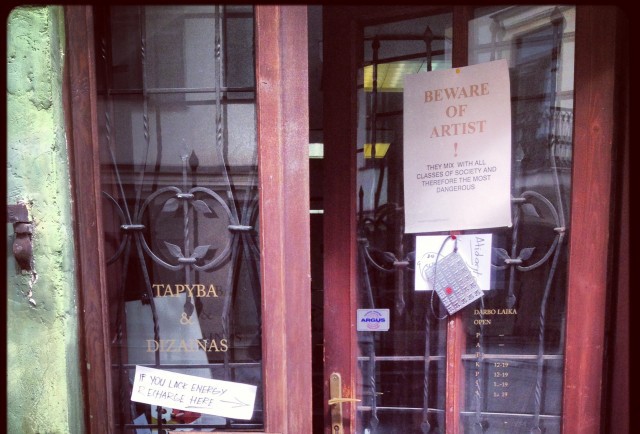On Being An OK Person In An Age of Personal Brands
by Kathryn Jezer-Morton

Last fall a Brooklyn designer I’ll call “DJ” with a roster of celebrity fans and friends stole $636 from me. She’s very talented and has an impressively well-realized personal brand on Instagram. She’s also a family friend. Our moms are buddies.
The story goes like this. My husband ordered a birthday gift for me from DJ’s online shop. It was $300, more than we could normally afford, but he had had a solid summer of work, so he splurged. A few days later while doing some online banking, I noticed that we’d been double-charged by her site. I emailed her to let her know, and she wrote back apologizing for the mistake, saying she’d refund it. Friendly, low-key, no big deal.
What does it mean to have a personal brand? Today, nearly every kind of professional is encouraged to develop one, from academics to sous-chefs to car salesmen. Members of the creative class are under the most pressure. There have always been people very skillful at narrating their lives, and this is their time. Narration is all it really is: choosing one detail over another, skipping over the boring parts so your audience stays interested. Honing your own voice until your narrative encompasses a world, a whole frame of reference that people can make sense of quickly. It’s the type of skill that’s hard to learn; you either have it or you don’t. The designer at the center of this story, she has it. She has it by the fistful. And thanks to the brand she’s built, based on her own life, using her own wits, she has a loyal following.
Once you have a well-crafted personal brand with a solid base of followers, you can start to monetize. If you’re an artist, this is when people start to want to pay for your work. If you’re a person with great personal style, this is when brands start giving you free shit. And this is where the script ends. How are you expected to behave, once you’ve started to reap the fruits of your self-branding labors? What are the rules? There are none. Most, if not all, of your transactions happen virtually, with people you’ll never meet. The momentum that surrounds a brand with a loyal following is very affirming. After a brutal fight with your partner, or landlady, or colleague, you can check in to your social media mentions and find a cascade of “Love this” and “Ur amazing, follow meeeeee!”
Certainly for many people, a successful personal brand is a straightforward way to make a living, through honest hard work. But for people with a weakness for escapism and a strength for narrating their lives in a compelling way, life behind a beloved personal brand can be a shelter from accountability. You can hide from what you don’t want to deal with while engaging with a group of strangers. When asked for your opinions, you are granted an enormous amount of leeway, because “brand authenticity” is basically the gold standard of 2015, and if being rude or late or a decidedly mediocre writer is part of the innate, organic, impossible-to-reproduce truth of your personal brand, that is OK.
It took me about a month of sending emails reminding DJ about the double-charge to realize that I was never going to get my money back, and nor was I ever going to receive what my husband had ordered from her. From her social feeds, which she updated regularly, it was clear that she had stopped making the type of product he had ordered. Her interest had moved elsewhere.
By the time I fully accepted that I’d been straight conned, it was too late to submit a claim to PayPal. Sorry, they said. You’ll have to follow up with her personally or notify law enforcement. I live in Canada, so local law enforcement was off the table.
It was up to me to get my money back from her, but I was having trouble integrating her behavior into my basic worldview. Like, we know each other, right? We see each other at least once a year at some kind of family gathering. Is this shit real?
In the two months that followed, DJ ignored my emails, and later my calls and texts, once PayPal was kind enough to give me her phone number. I maintained a delusional commitment to working it out lady-to-lady, and used a tone of relative calm in my communication with her so that she wouldn’t be able to accuse me of acting crazy on her.
Her silence in the face of my pleading had the effect of gaslighting me. More than once I thought maybe I was wrong, maybe I was being unreasonable. Maybe $636 is chump change for the types of clients she’s used to working with, and I was making a big fuss over nothing.

Then there were her unassailably cool artist friends in Brooklyn and L.A., the ones who left affectionate comments on her Instagram posts. Maybe my fixation on getting my money back was lame. Maybe I was showing my hand as a fundamentally basic person by having such tedious material concerns. Maybe if I were following a calling toward art and truth instead of toiling among the normies I wouldn’t be so worried about my six hundred stupid dollars. My mind went all kinds of places as I wondered what compels a person behave so amorally. Her unwillingness to even acknowledge that she possessed something of mine was bewildering.
In the midst of this, a surreal interlude took place: One morning while scrolling through Instagram I came upon an image she posted of something she was working on that contained within it — as part of her medium — six actual hundred-dollar bills. Agape, I showed my husband. “This isn’t some passive-aggressive Instagram communiqué, right?” I asked him. He began to laugh in disbelief. That’s exactly what it was.
After about 3 and a half months, I was running out of ideas. I was powerless. My resolve to get my money back was probably stronger than it had been at the start, because I began to see it as a moral crusade, which I admit is self-aggrandizing and definitely not cool. Reluctantly, I used my Hail Mary: I texted DJ a warning that if we couldn’t come up with some kind of repayment plan, I’d contact her mom. Within minutes, she replied, this time with a new twist to her lie. PayPal had, in fact, serviced my claim, she said. They’d deducted the money from her long ago. They had the money. I demanded a screenshot of her account, showing the deduction. Instead she sent me a “transaction number,” which I was not at all surprised to learn, upon reciting the number over the phone to a PayPal agent, was a random string of letters and numbers that she had made up on the fly.
We are living in an age in which a great social media presence can buy you a very rad life. If cool were an actual currency, it would be valued higher than ever right now. Greece would be eyeing it as a possible alternative to the Euro. This designer’s expression of cool had given her a pass — probably only temporarily, but still — to behave however she wanted. While I was trying to figure out how to get her to answer my emails, through a mutual friend I met a woman who I’ll call Di who had been cheated out of money by the same designer. Di runs in the same circles as DJ does, but is a bit younger and less experienced. After a year of conflict over money, they came to an agreement that was less than satisfactory to Di. But, Di admitted to me, they’re still friends. It simply wasn’t worth the loss of social capital for Di to hold a grudge.
It must have been the phony transaction number that I read over the phone that finally compelled a PayPal agent to throw me a bone. After explaining my situation for the umpteenth time, the agent asked me to wait while he spoke to a supervisor. Sometimes it really does pay to be a graduate student. Not everyone has a flexible three hours in the middle of Thursday afternoon to spend on the phone with customer service, but I do.
Finally, PayPal agreed to resubmit my claim and to service it. They gave DJ 10 days to submit paperwork indicating that she had paid me back by some other means, but she didn’t. I doubt she even knew they were trying to contact her; I don’t think she answers her phone if it’s a number she doesn’t know.
Yesterday, five months after my husband placed the order, I got our money back. I’m relieved that I didn’t have to talk to DJ’s mom. I do hold a grudge, because she lied to me repeatedly. Mostly, I wonder how she will fare down the line. I hope experience teaches her that you shouldn’t treat people with outright disrespect while narrating a persona of someone whose main interests in life are truth and beauty. At least, not without doing some damage to your brand.
Kathryn Jezer-Morton is a writer and editor in Montreal. She writes about motherhood at youremomdotcom.com.
Support The Billfold
The Billfold continues to exist thanks to support from our readers. Help us continue to do our work by making a monthly pledge on Patreon or a one-time-only contribution through PayPal.
Comments